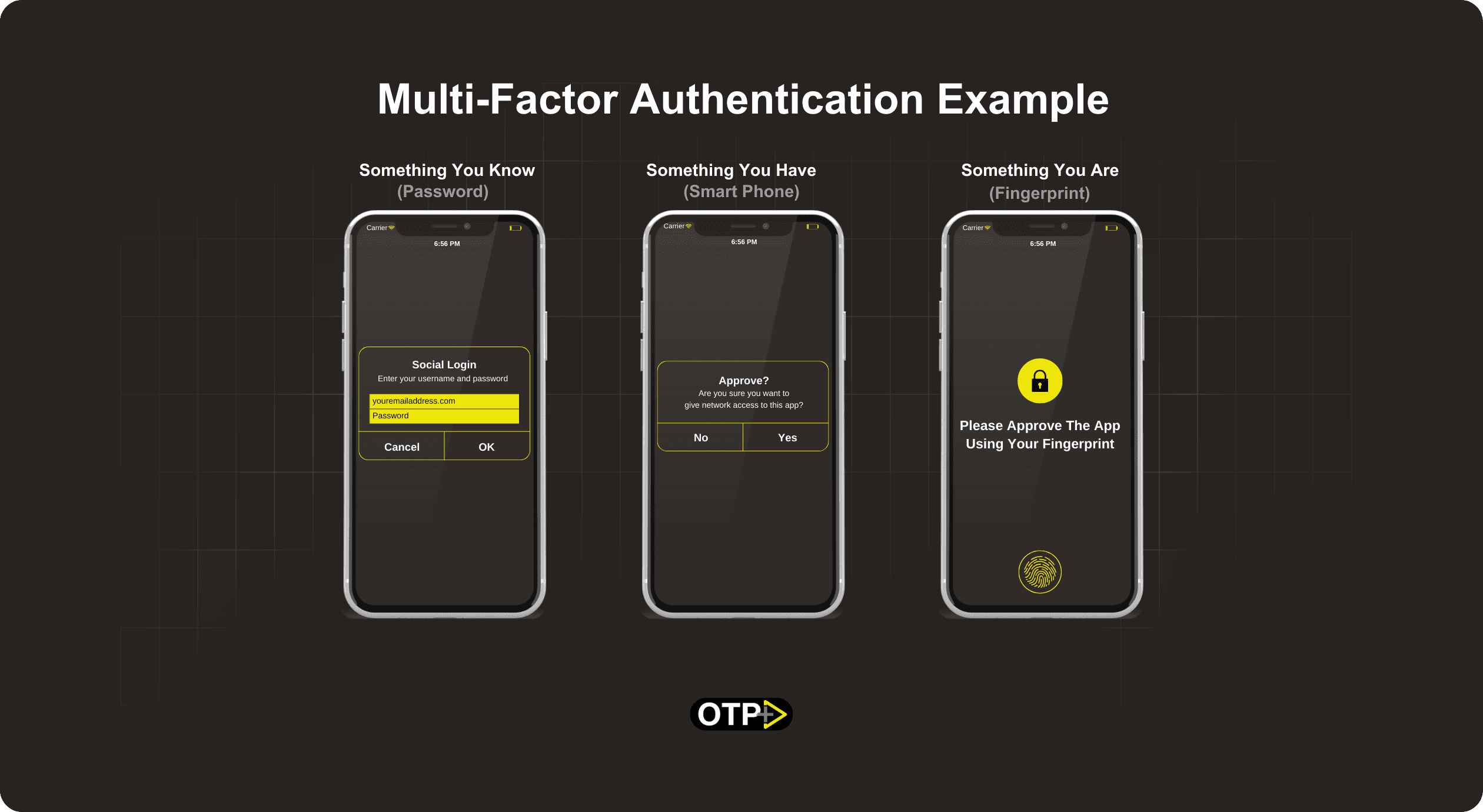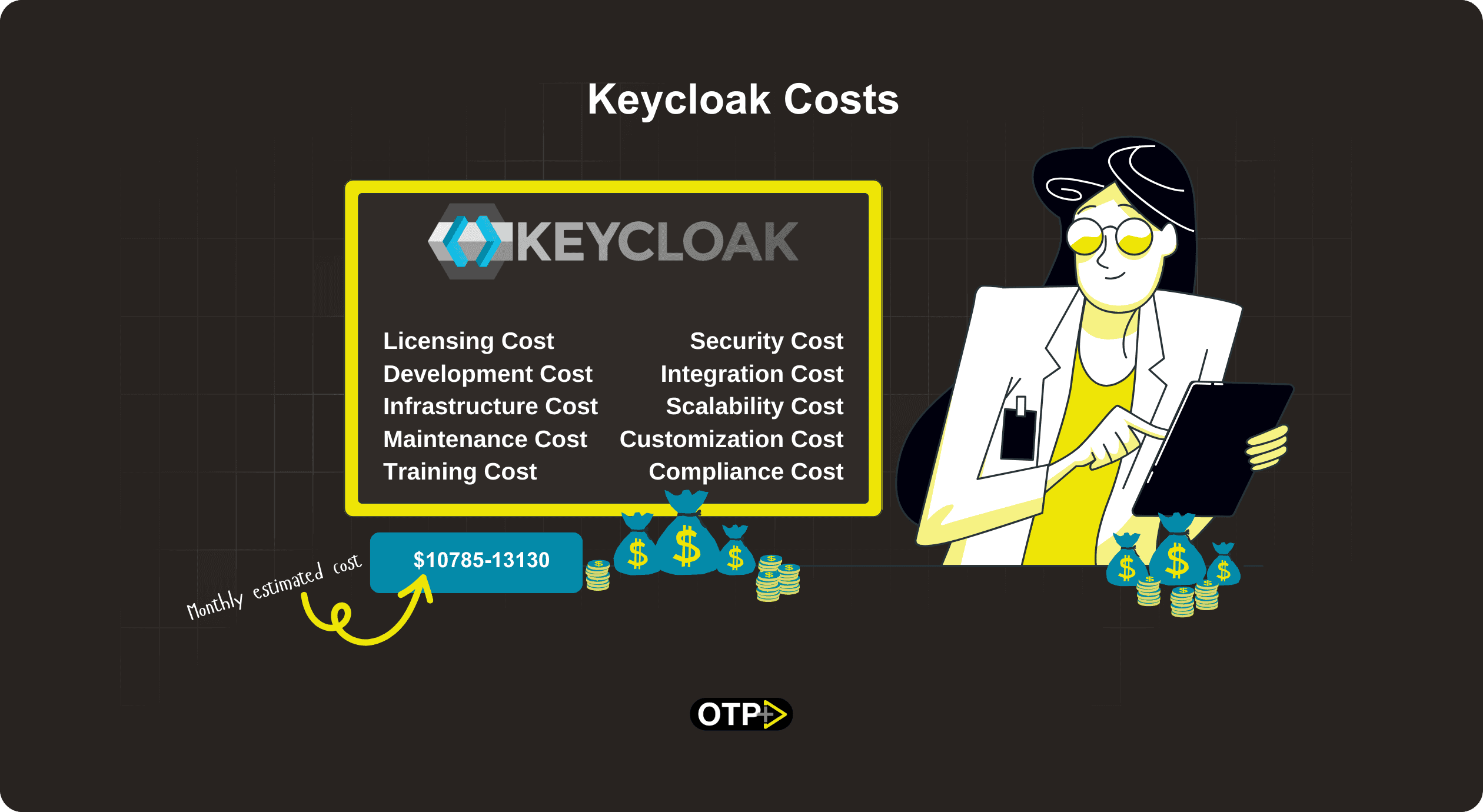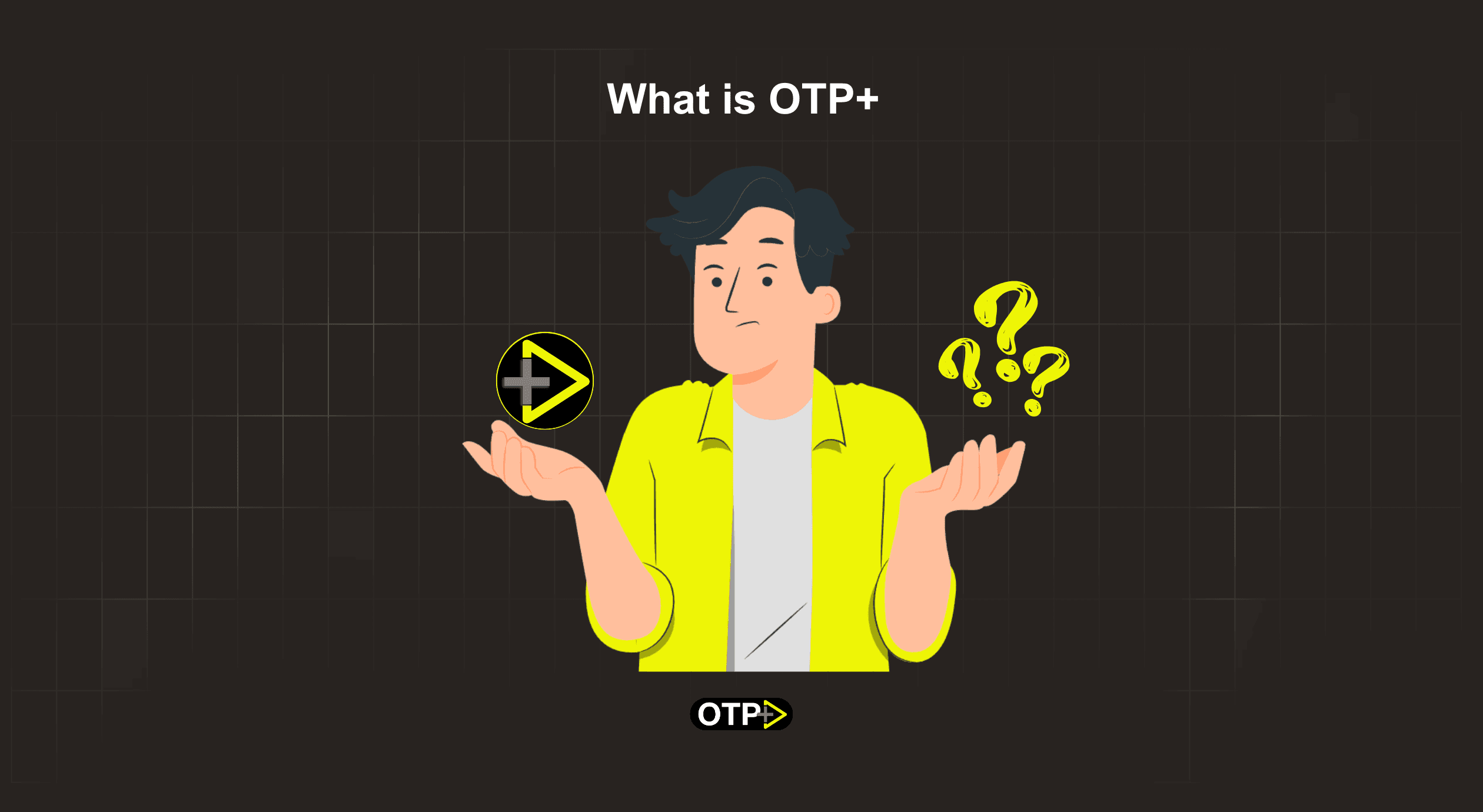How To
Multi-factor Authentication Examples
Vijay Kakadia
•
Mar 22, 2024
•
5
min read
Share
In the vast digital landscape, protecting our online presence is crucial. Imagine having a superhero shield for your digital life - that's what multi-factor authentication (MFA) is all about. It's like having a secret code, a magic key, and a personal trait, all working together to keep your accounts safe.
There are many ways to learn about multi-factor authentication, but we have combined them mainly into 3 types.
1: Something You Know
2: Something You Have
3: Something You Are
Let them understand one by one, and let’s start with “Something You Know.”
Something You Know
ID Password
Yes, ID and password are examples of multifactor authentication. It does not need any introduction.
E.g.: 12345678, ILoveOTPPlus
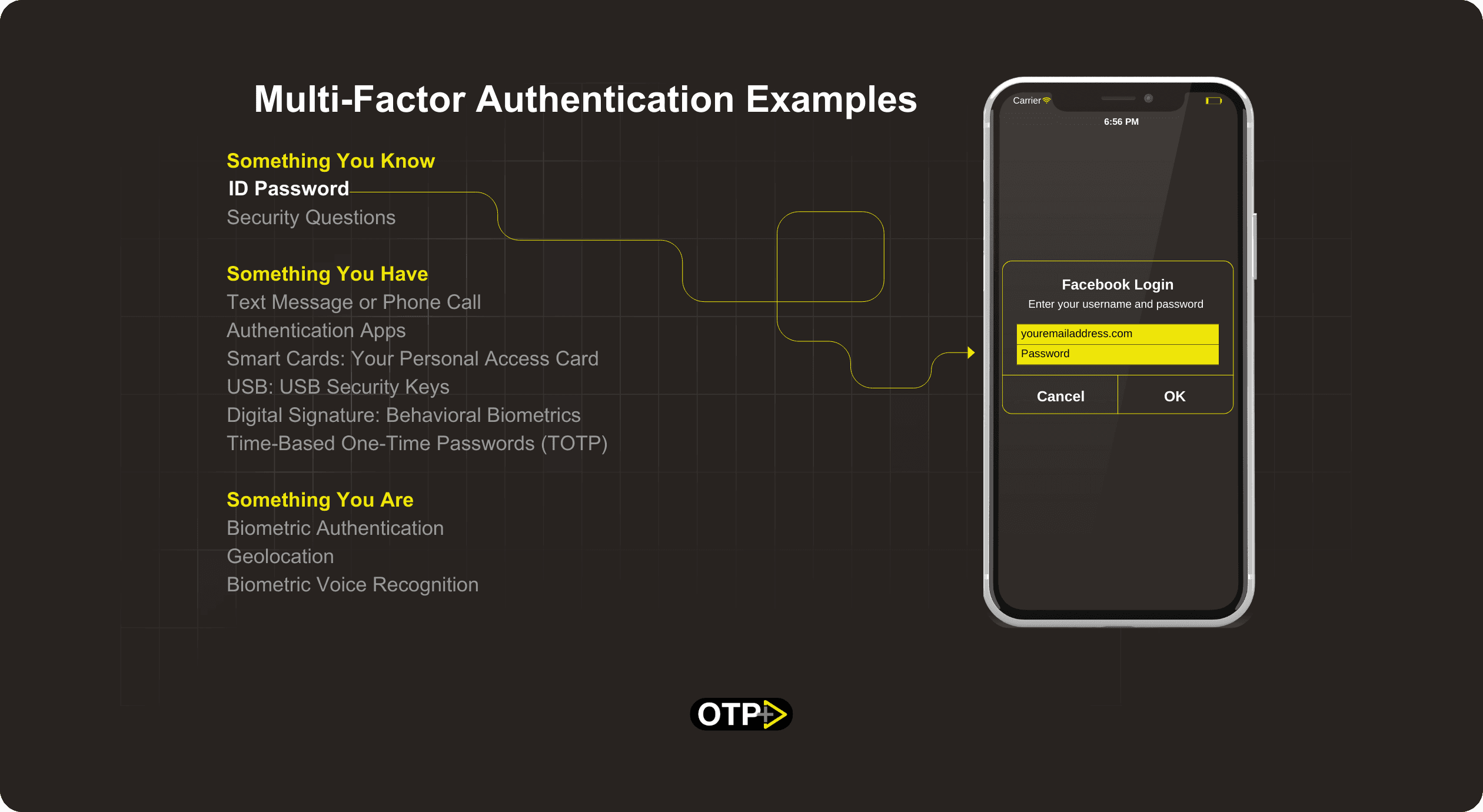
Security Questions
Ready for a quiz? After the password, answer a few personal questions. It's like having secret backup codes only you know.
E.g.: What's your first pet's name?
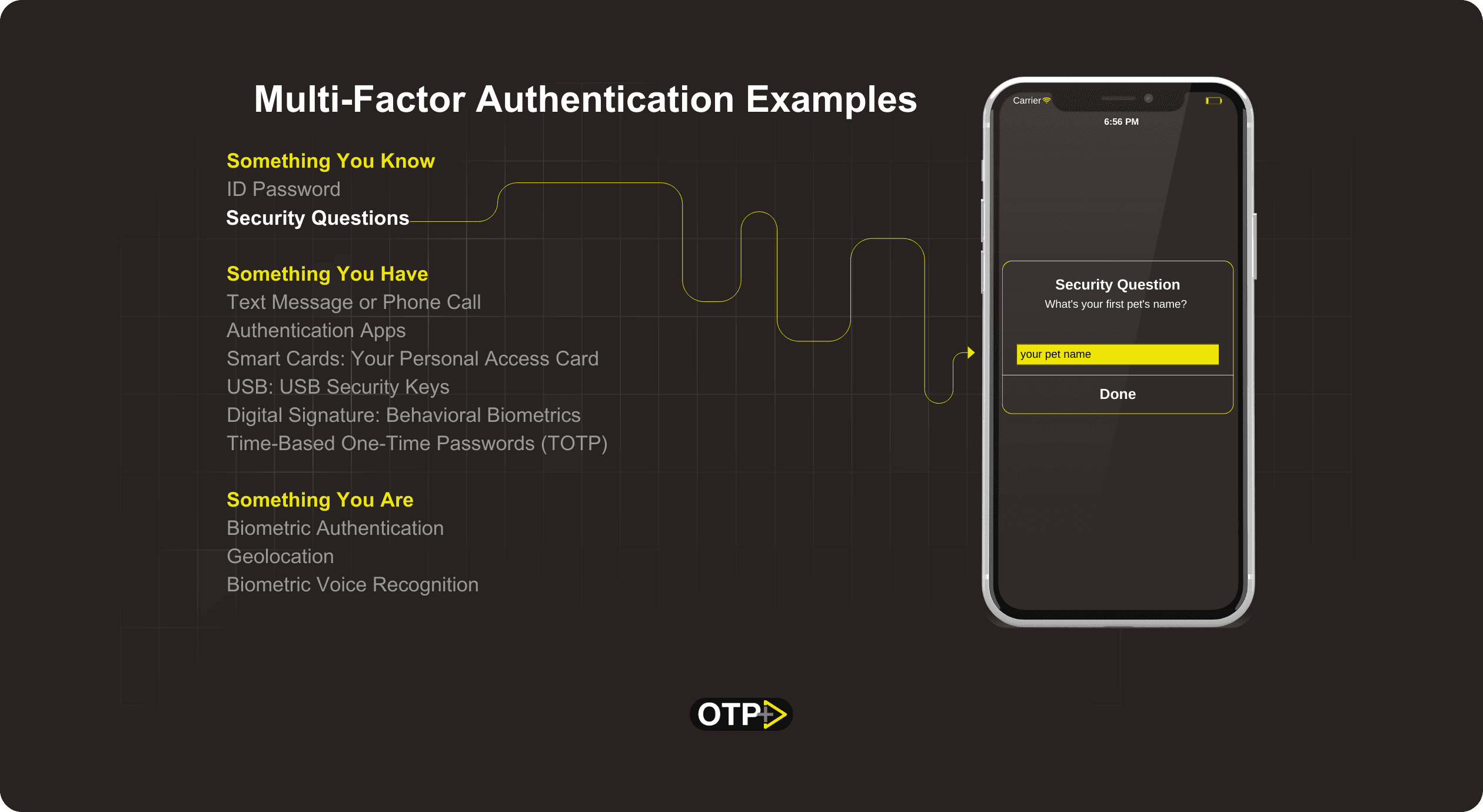
Something You Have
Text Message or Phone Call
After you've set up your password, the first superhero sidekick is a text message or phone call. Once you enter your password, a unique code is sent directly to your phone. It's like a secret handshake only you and your phone know. It is also one of the multi-factor authentication examples
E.g.: when you log in, you get a text with a code like "684237." Enter it, and you're in!
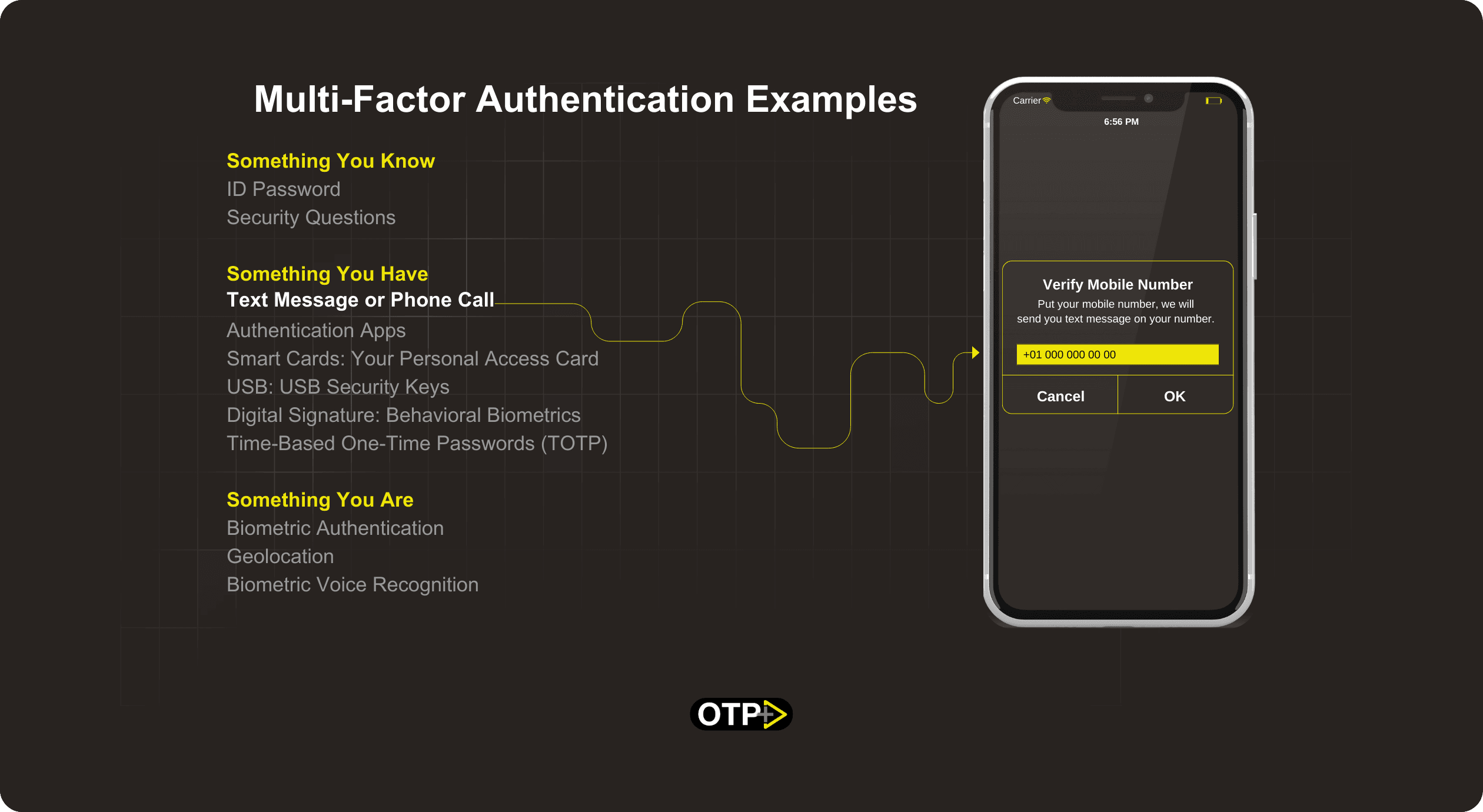
Authentication Apps
Ever heard of Google Authenticator? It's like your authentication app. Install it on your smartphone, and after typing your password, open the app. There, you'll find a special code that changes every few seconds. Type it in, and voila! Your account is safe and sound.
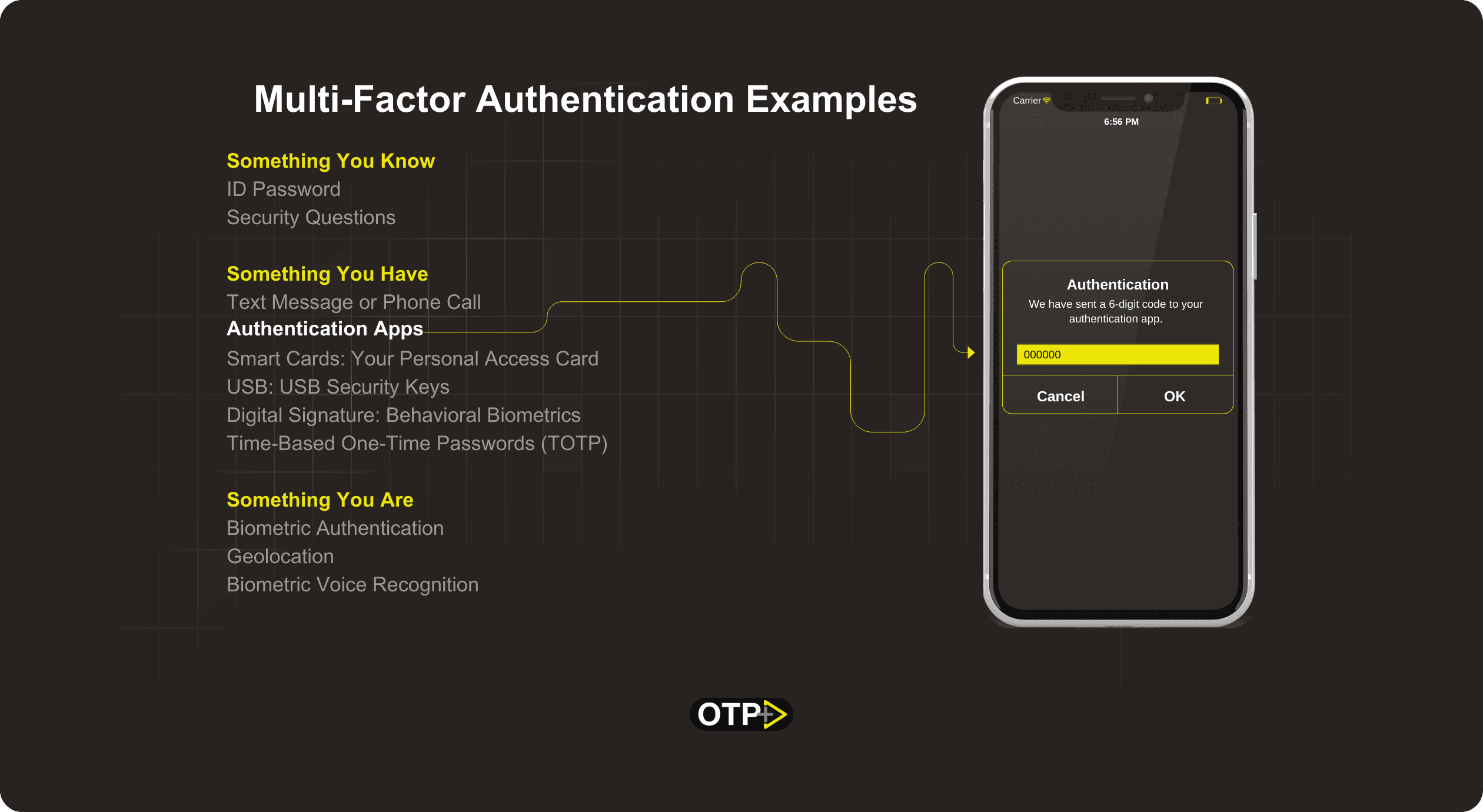
Smart Cards: Your Personal Access Card
Think of it as your VIP pass. A smart card is a physical card with a secret chip. Insert it into your computer, and it generates a special code. Combine it with your password, and you're granted access to the secret club.
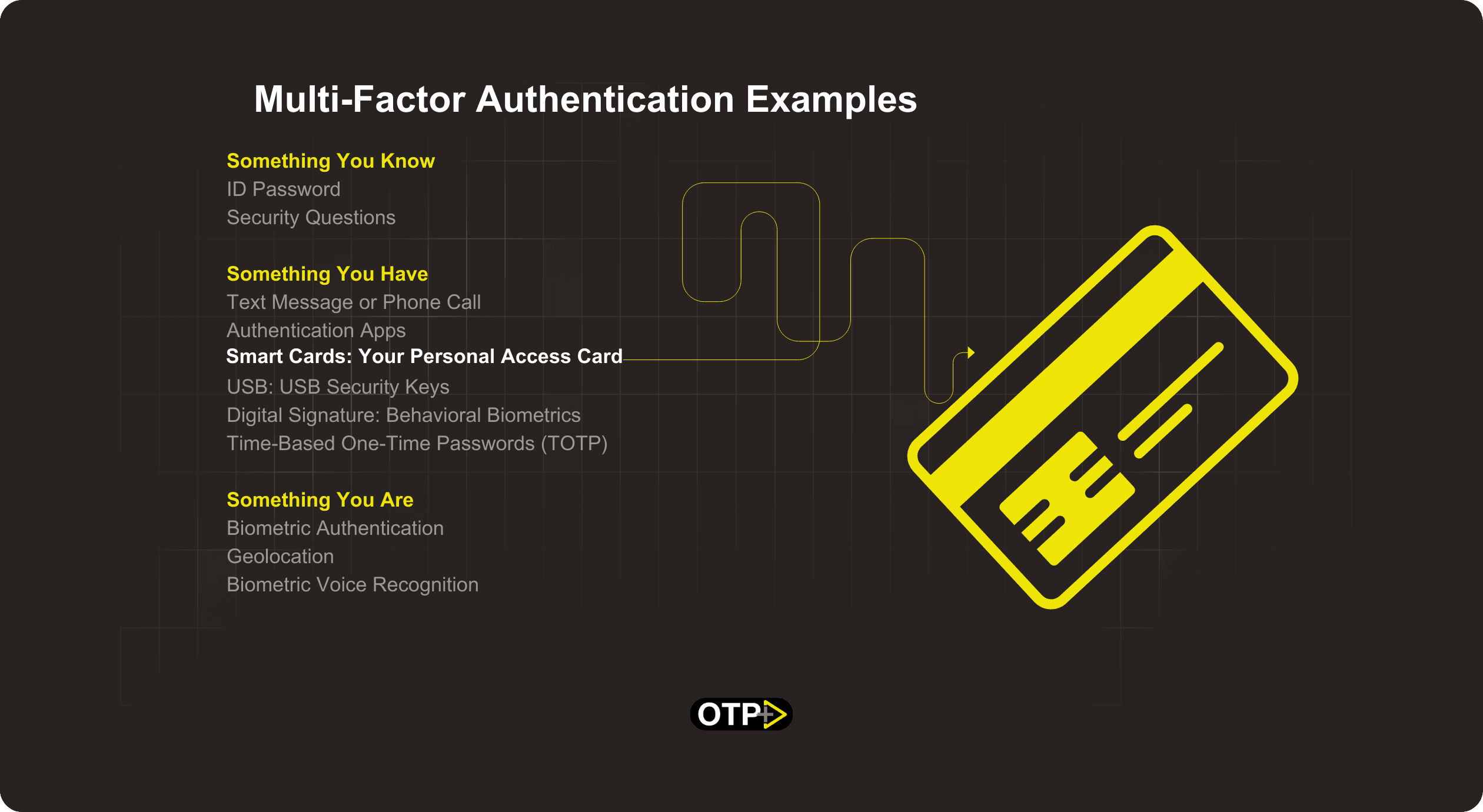
USB: USB Security Keys
Imagine a tiny superhero device connected to your computer. Just tap it or press a button, and it grants you access. It's like a mini-bodyguard ensuring only you get through.
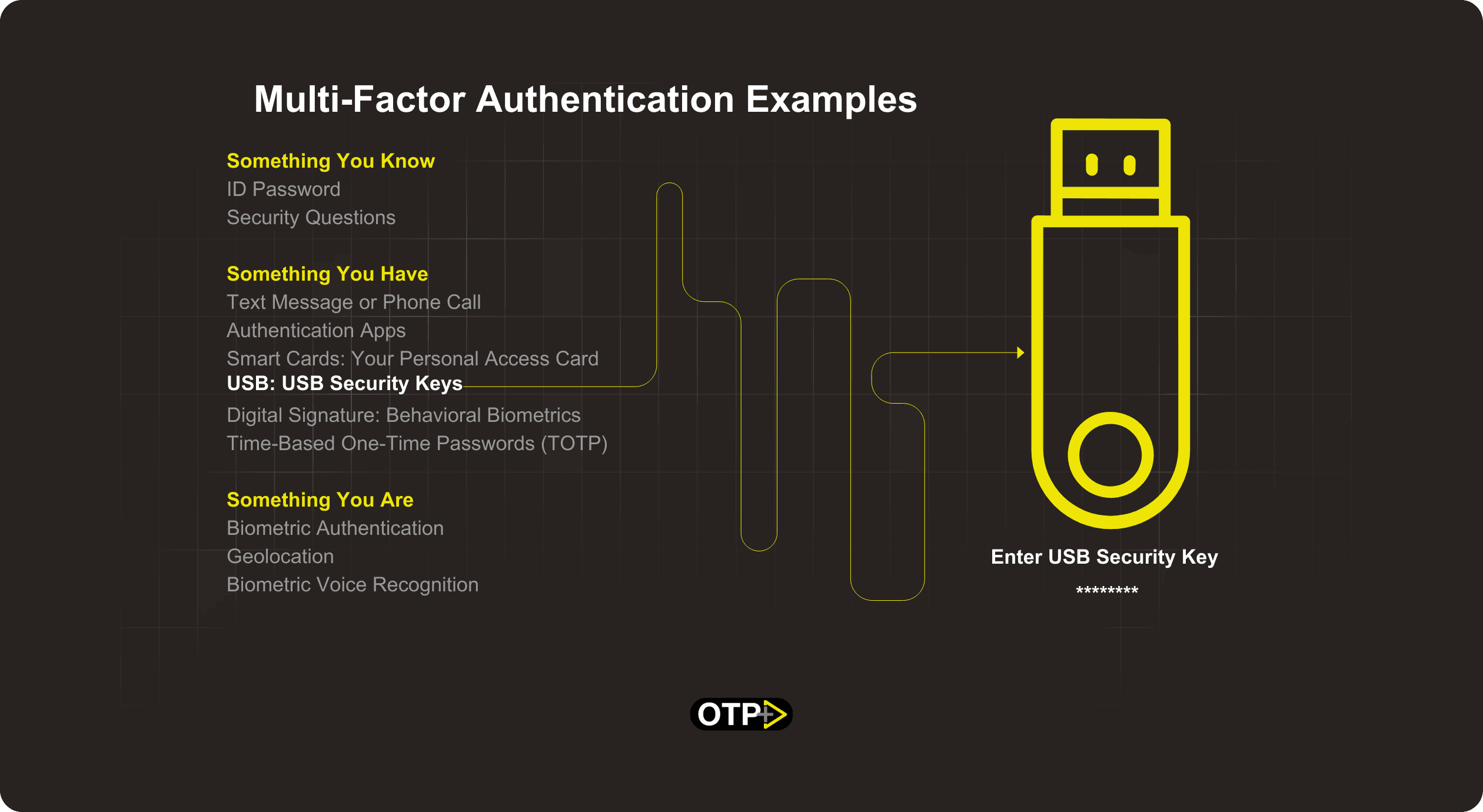
Digital Signature: Behavioral Biometrics
Your unique way of typing or moving the mouse becomes your digital signature. It's like having a superhero sidekick that recognizes your every move and confirms, "Yep, it's You!"
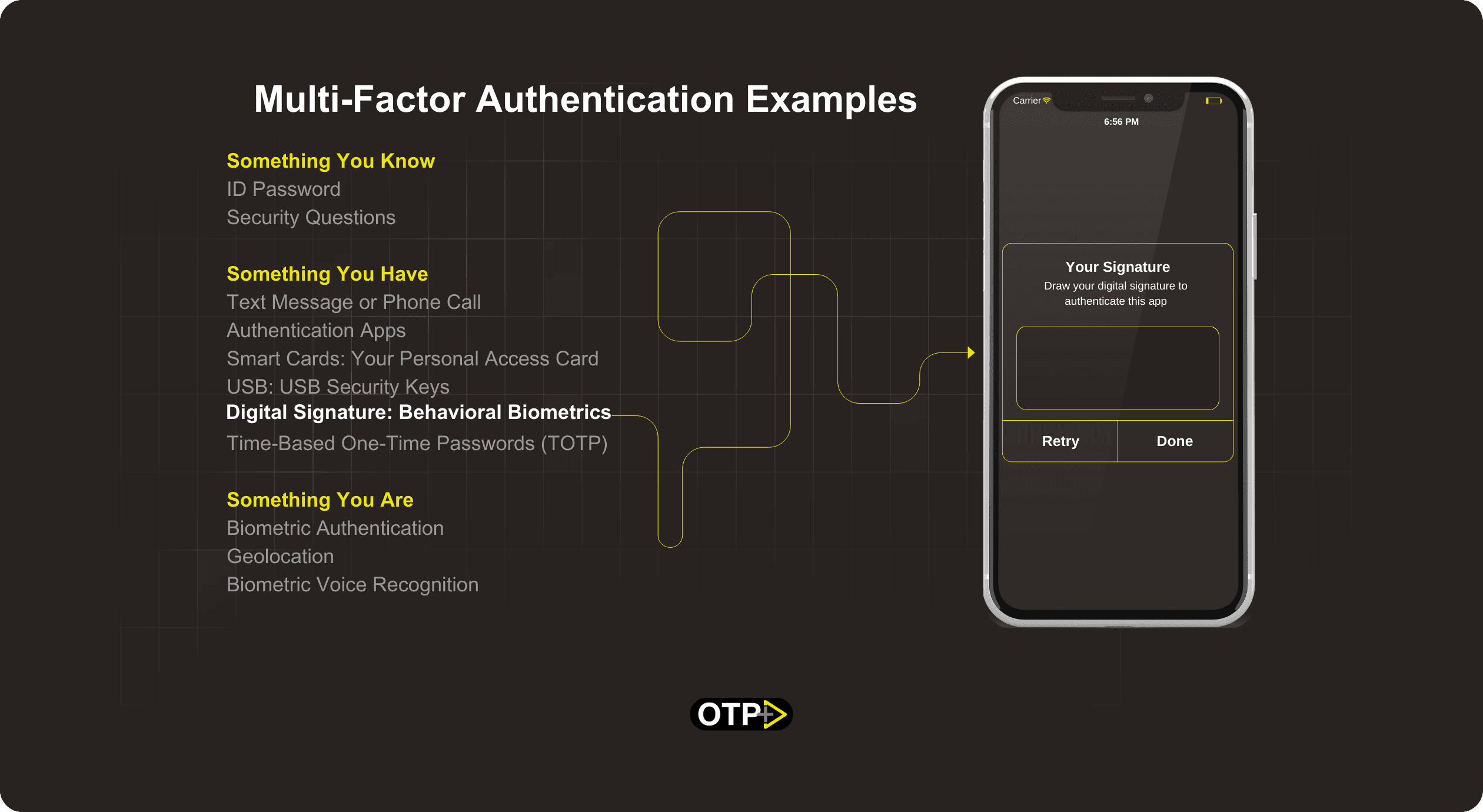
Time-Based One-Time Passwords (TOTP)
This one's a bit like a time-sensitive spell. A special code appears on your app, and it changes every few seconds/minutes. Only when you type in the correct code at that specific time, you're granted access. It's like a moving target for any digital intruders.
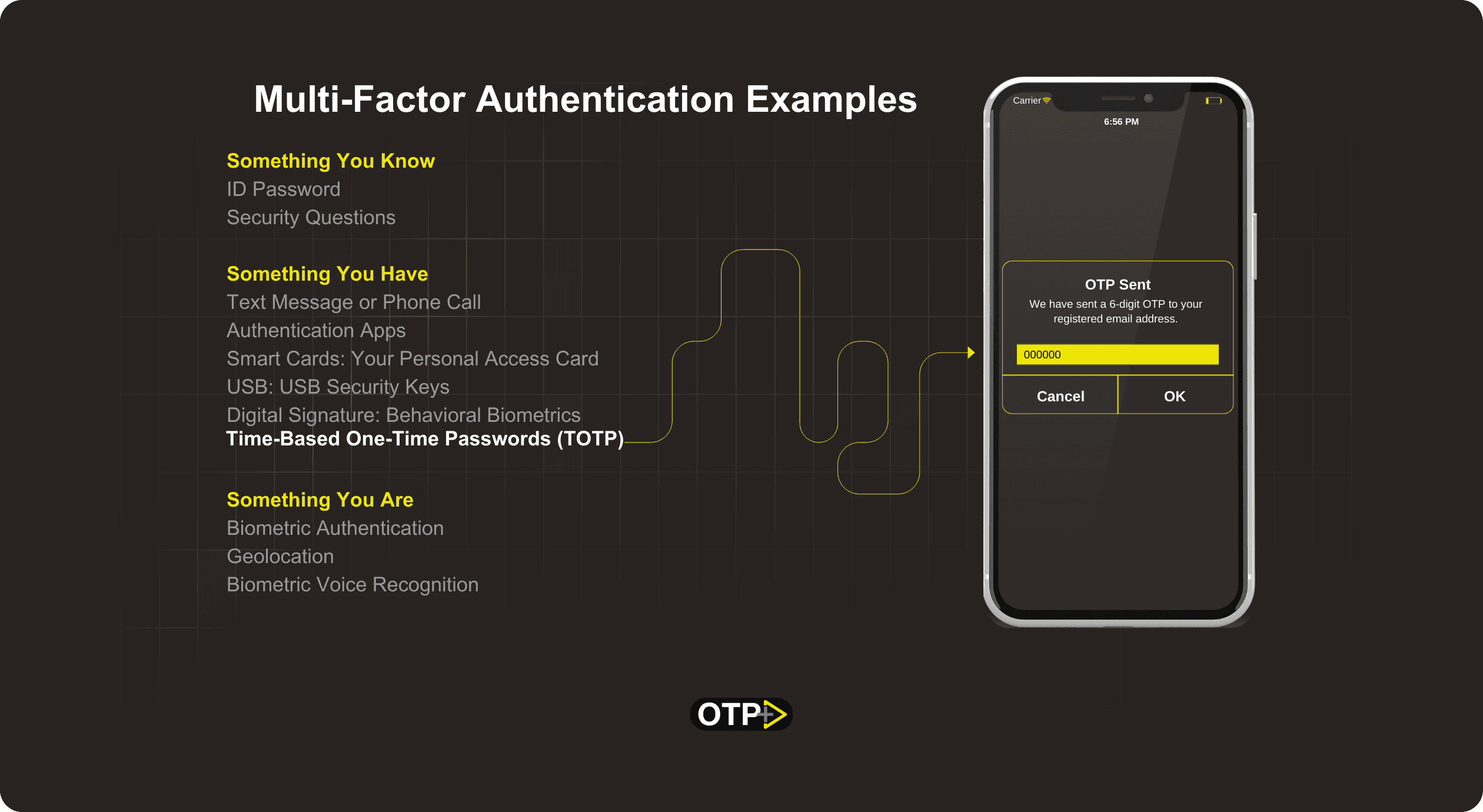
Something You Are
Biometric Authentication
This one's for sci-fi enthusiasts. Your fingerprints, face, or even eye scan become your digital fortress's key. It's like having a superhero lock that only opens for you.
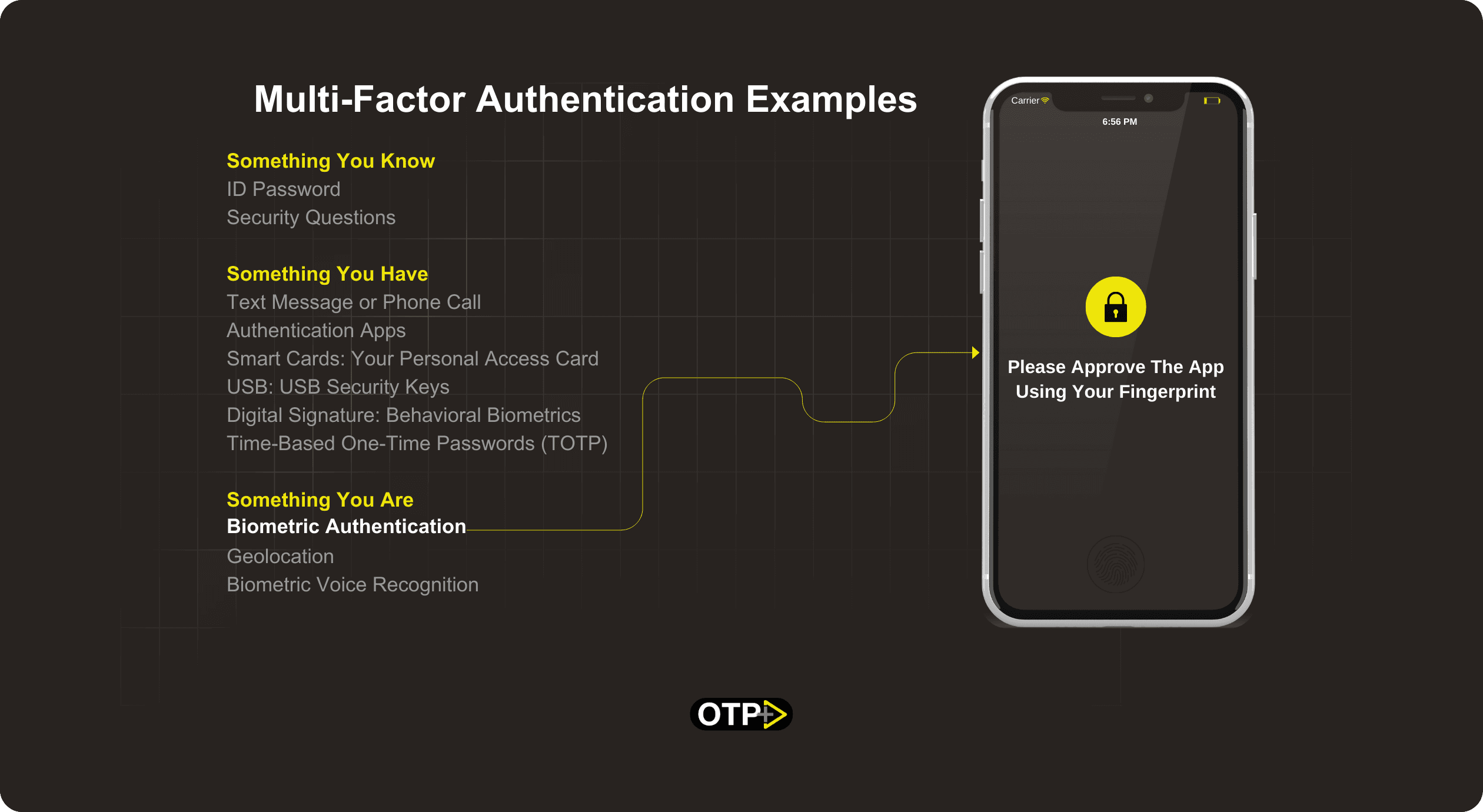
Geolocation
Your digital superhero checks where you are. If it's your usual location, you're good. But if you're somewhere unexpected, additional verification is needed. It's like your account saying, "Are you sure it's you?"
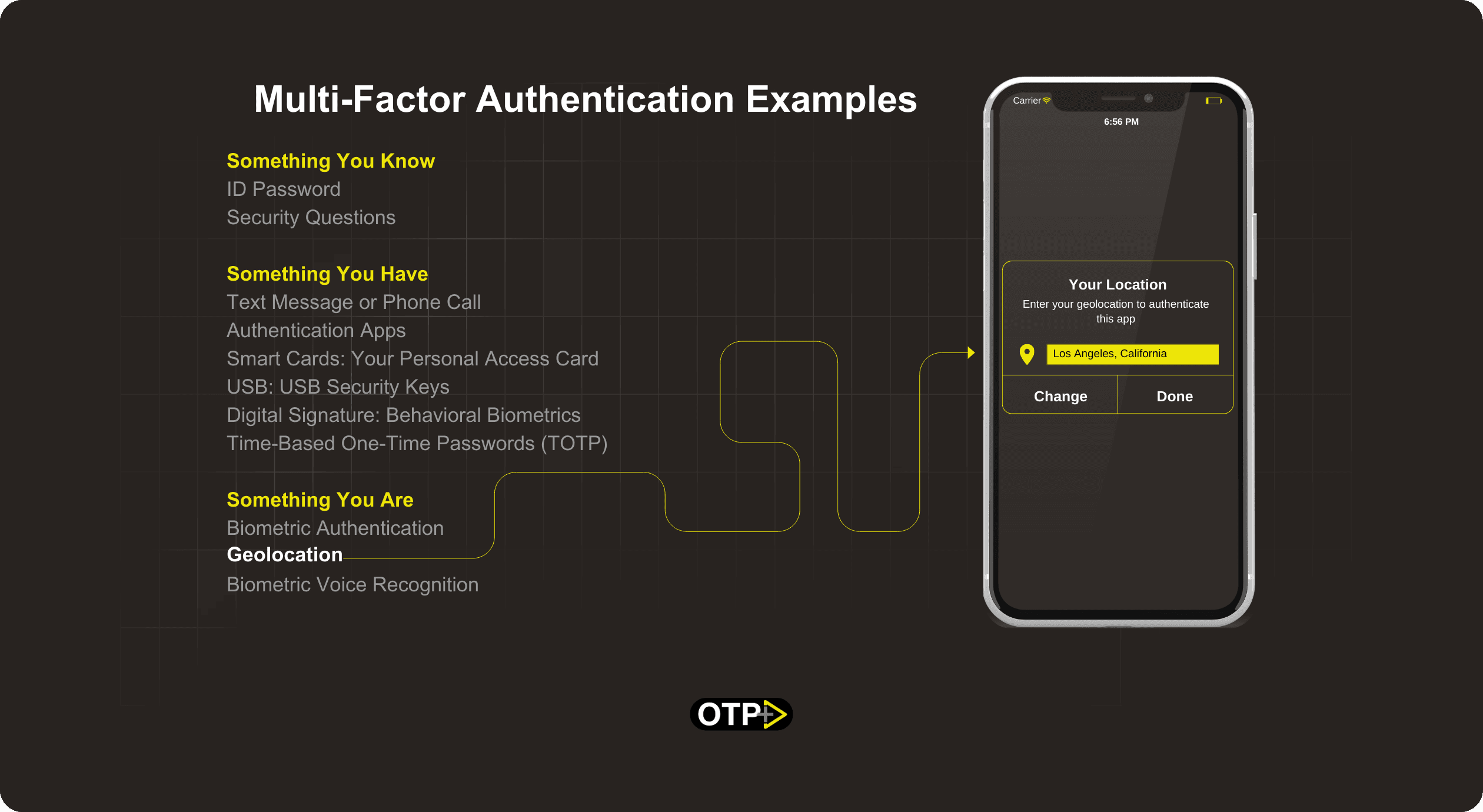
The Sound of Security: Biometric Voice Recognition
Your voice becomes your secret password. Like superheroes recognizing each other by their voices, your account knows it's you when you speak. It's like having a voice-activated fortress for your digital secrets.
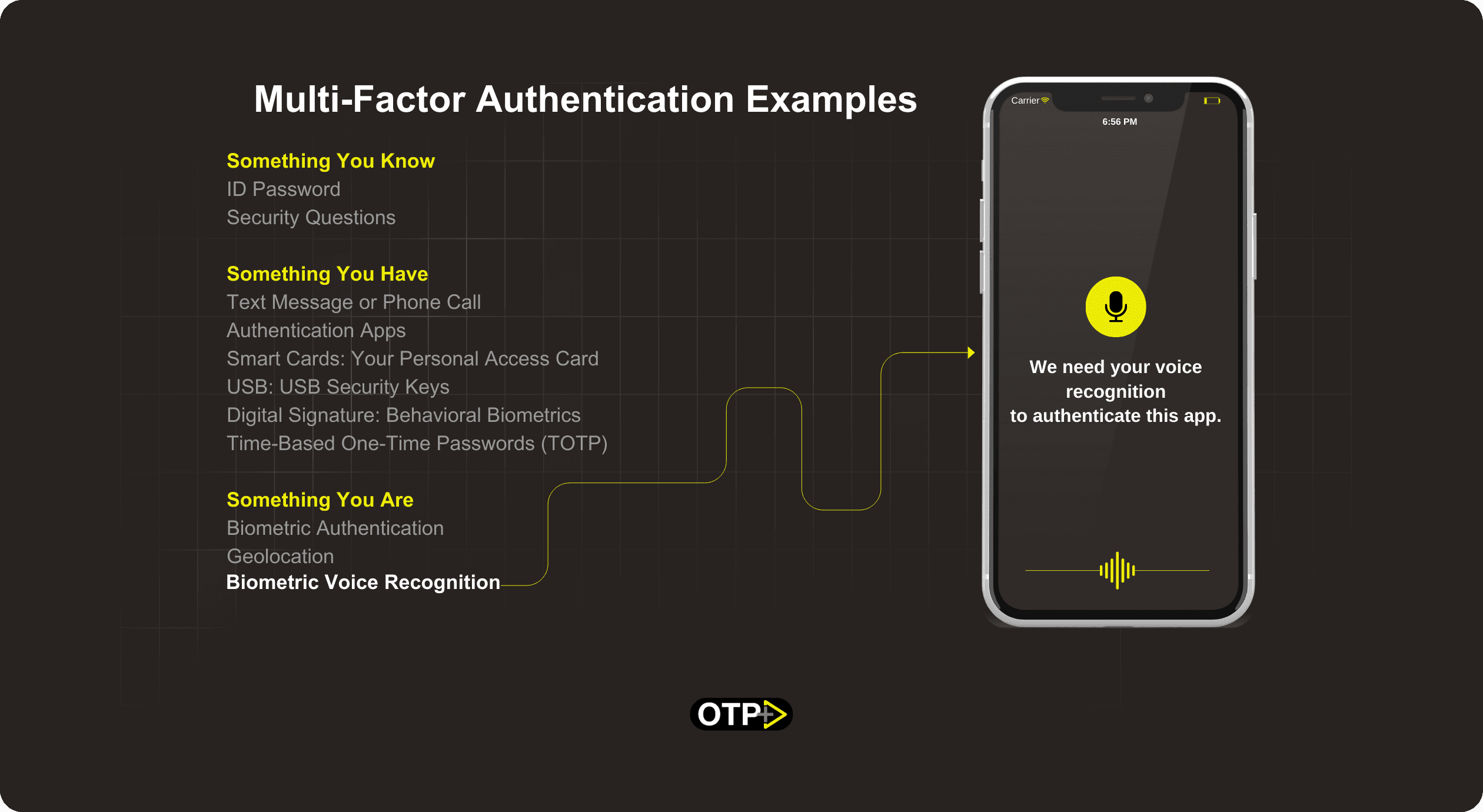
Conclusion
Congratulations, young app developer! You've just learned the secrets of multi-factor authentication with its examples. Combining these authentication methods creates an impenetrable shield around your app. Not sure why multi-factor authentication is important? Check out this blog. Remember, with excellent security comes great responsibility. Stay safe, stay vigilant, and enjoy the d

